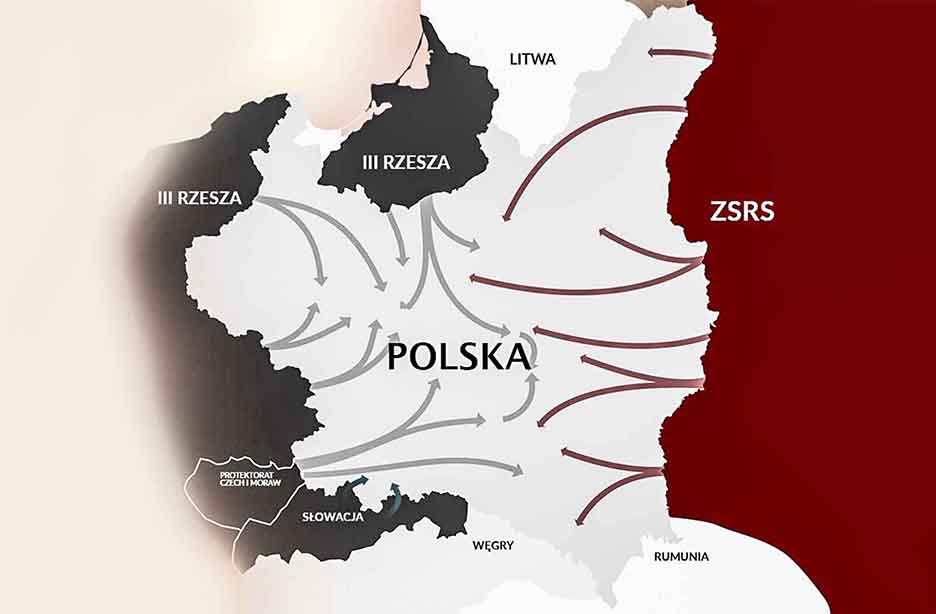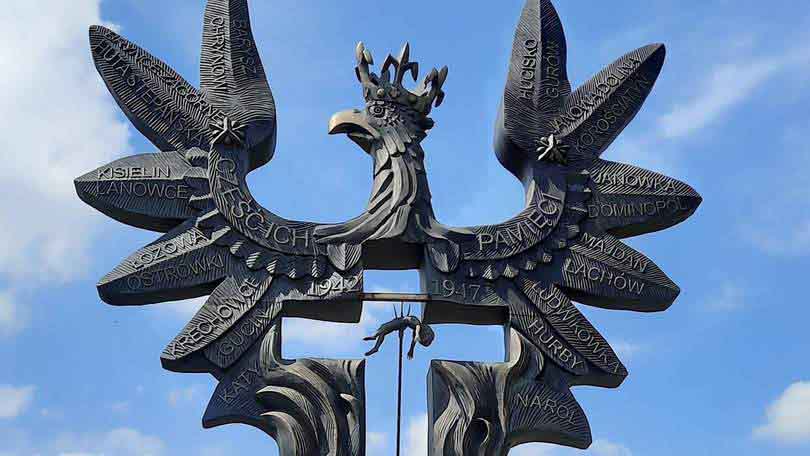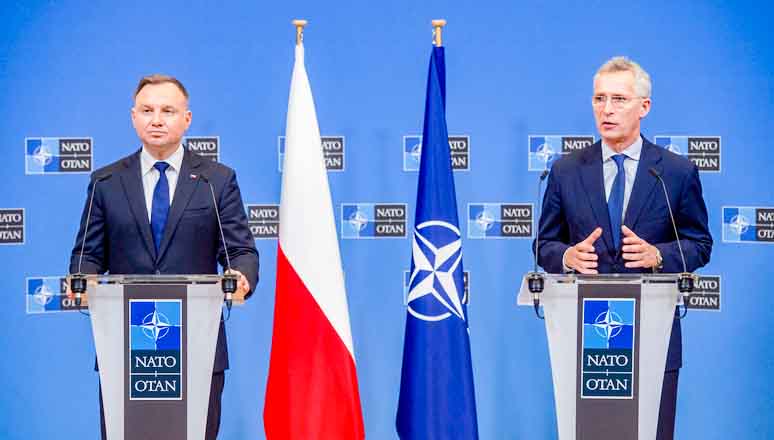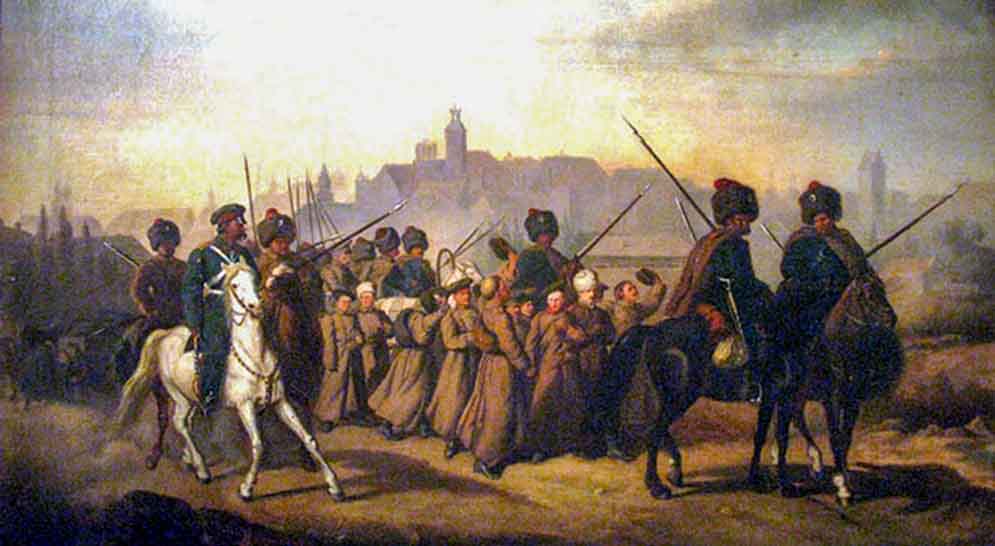The history of Poland is a history of opposing evil. In a way, it shows what is really important: how essential absolute, objective standards and moral frameworks are to society. Something that we tend to lose sight of, for example, in the United States, getting into arguments about issues that people find extremely irritating but have no lasting significance, says American writer and columnist, longtime Financial Times correspondent David Satter.
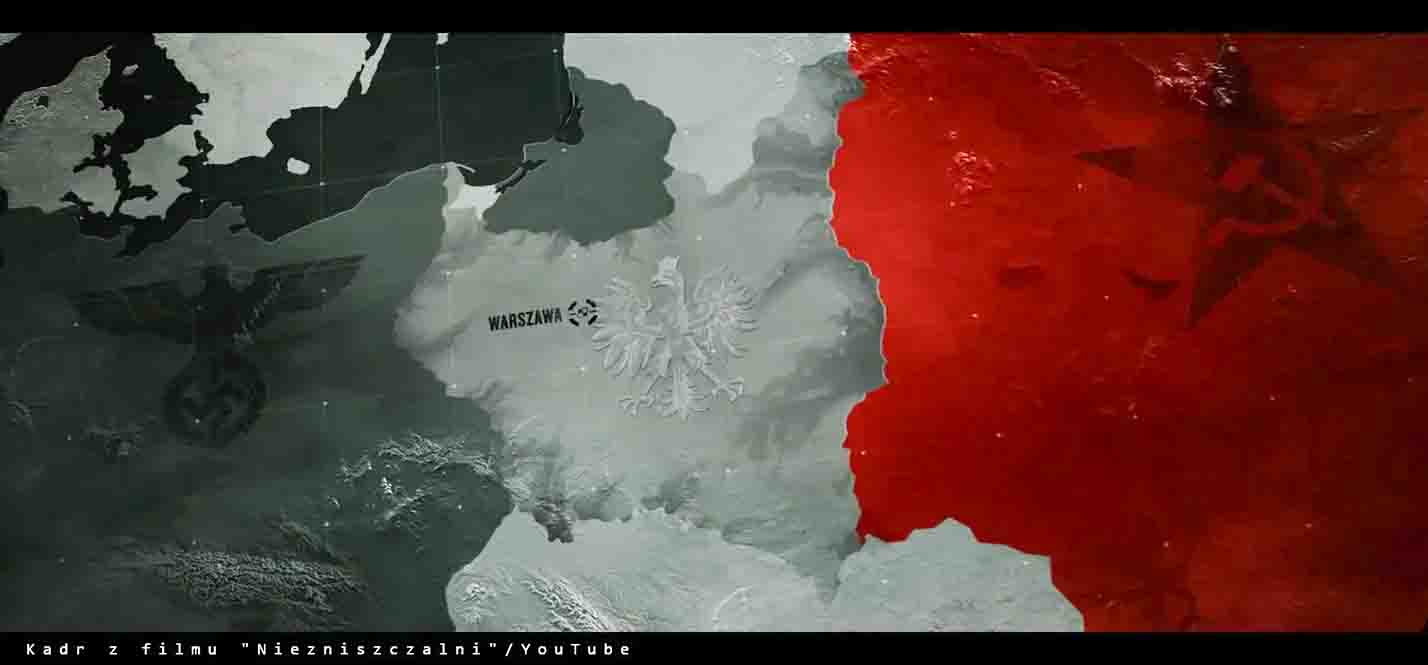
A still from the feature film "Niezniszczalni" (The Indestructible)/YouYube (Source: DlaPolonii.pl)
Anna Druś: Which part of Polish history interests you the most?
David Satter: This is a very difficult question, because I am interested in many episodes of Polish history, where the past left a strong mark. Nevertheless, it is the period from 1939 to the fall of the communist regime, which I believe occurred in 1988, that occupies me the most, partly because it was particularly traumatic. In addition, in later years I had the opportunity to visit Poland. I came here for the first time in 1969 as a student at Oxford — it was a completely different Poland. And Warsaw was a completely different Warsaw.
AD: That's right, now it's a different country and a different city. In reference to the previous question — what aspect of our history, in your opinion, deserves greater popularization in Western countries?
DS: I think the history of Katyn, because it says a lot about the nature of totalitarianism. In one of my books — It was a long time ago as if it never happened. The communist past of Russia — I devoted a whole chapter to these events. The history of the Warsaw Ghetto with the entire history of the Holocaust in Poland and Polish Jews is also particularly important. In addition, the post-communist period, Solidarity and partial liberation or self-liberation of Poland from communism are also important. And, of course, the Warsaw Uprising in 1944. Apart from the aforementioned time of Solidarity, these are very dramatic events. Due to its geographical location, Poland has experienced cataclysms that most countries have never had to endure. But I would not say that the West does not know this story, because it is not true. But it is still worth recalling many of its details.
AD: Do you think that this part of Polish history can help Americans, Brits and Westerners in general to understand what is happening now in Ukraine?
DS: Absolutely. The history of Poland is a history of opposing evil. In a way, it shows what is really important – how important objective standards and moral frameworks are to society. Something we tend to lose sight of, for example in the United States, when we get into arguments about issues that people find extremely irritating but have no lasting significance. Moreover, the fate of Ukraine was to some extent the fate of Poland, so the United States must understand what will happen to the Ukrainians if their country is taken over by the Russians. There will be acts of barbarism, examples of which we have seen in Bucha, Mariupol and elsewhere. In this matter, you should get rid of illusions. Certainly, then, the history of Poland, which at various times was occupied by two totalitarian powers, carries an important warning about what may follow.
AD: How do you see Polish involvement in helping Ukraine? What is Poland's role in the fight against Russian imperialism?
DS: I would point to a warning role for other NATO members. On the one hand, Poland, which belongs to NATO, is, so to speak, on the front line with Russia. On the other hand, due to its historical experience, it is best equipped and prepared to explain to the West what is at stake in this war. In the United States, there was no shortage of people who called themselves "realists" who said that Russia should not be provoked by admitting Eastern European countries to NATO. Fortunately, Poles and the nations of the Baltic countries were able to be guided by realism, ignore these voices and secure themselves by joining NATO. As a result, the blow fell not on Poland, but on Ukraine. But it could have been otherwise. History could repeat itself, and this is where the terror experienced by Ukrainians today could have entered. However, Polish politicians and Polish society understood the necessity of belonging to the Western alliance and, as a result, they are provided with significant protection.
AD: Many Poles believe that our reaction to the war in Ukraine stems from our difficult history. Helping Ukrainians was and still is a large-scale movement in Poland, involving many ordinary people who approach these events very personally.
DS: Even though in the past Ukrainians and Poles had, to put it mildly, their own problems.
AD: Do you share the opinion that our reaction is based on the historical experience of Poles?
DS: Partly it is, but I think it was basically a genuine humanitarian move. Poles have shown that in a crisis situation they are ready for solidarity. They understand the fate of Ukraine — a similar one happened to Poland and could meet it again if it were in the same situation as Ukraine. Ukraine was defenseless because it was not a member of NATO, and the blow fell on it. By defending Ukraine today, we are also defending NATO. I think that Poles, being right next to them and seeing what is happening, understand it perfectly.
AD: What do you think about the future of Russia? Do you believe that Russia will ever be democratic?
DS: I think that the best chance for a democratic Russia would be a defeat in Ukraine. This is evidenced by Russian history — after the defeat in the Russo-Japanese War, Russia adopted a constitution, and after the defeat in the Crimean War, serfdom was abolished. Thus, the defeat of Russia in the current conflict may, paradoxically, have a positive impact on the internal evolution of the country. But the aftermath of losing can also be negative. Bismarck said that two things cannot be predicted: what the weather will be like tomorrow and what will happen in Russia. This is true today — Russia remains a very unpredictable country. And unfortunately, negative tendencies prevail in it. So if there is a chance for Russia to become more democratic and become part of Europe, it is the defeat in Ukraine. There would also have to be important changes in Russian society as a result of this defeat.






